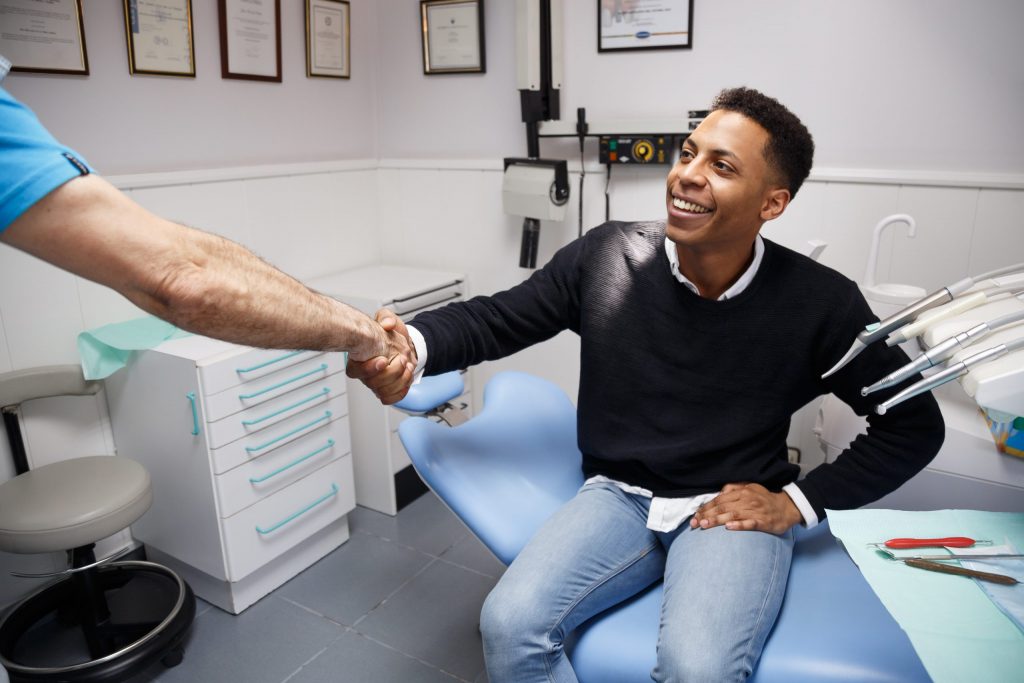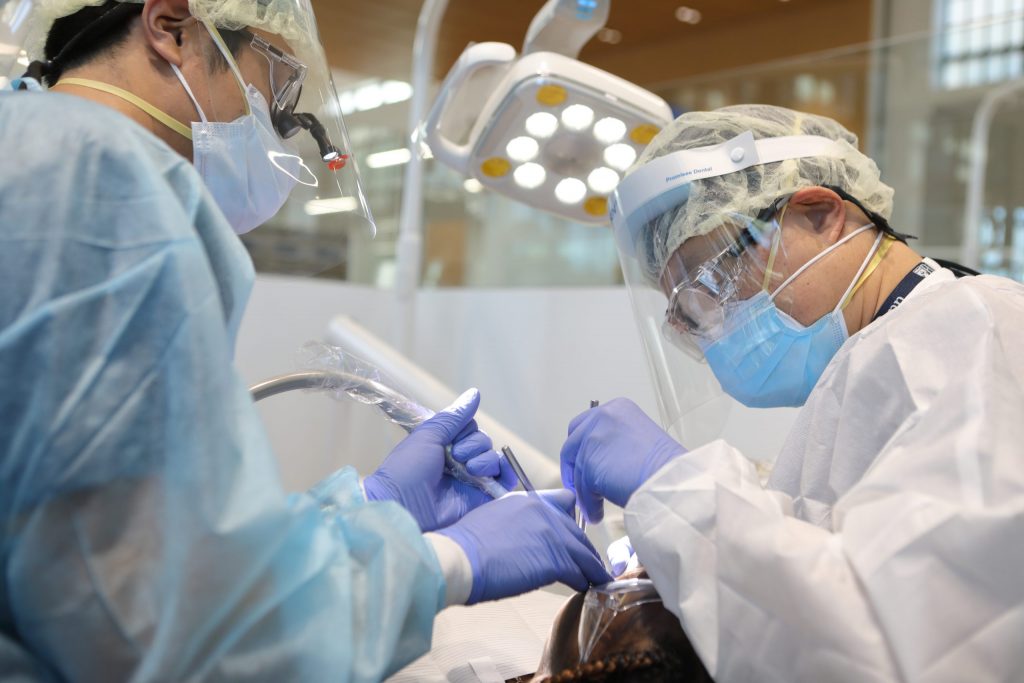Resource Library
Start Reading

Oral surgery can be a daunting prospect for many people. However, asking the right oral surgery questions can help alleviate many of your worries. In this article, we’ll discuss important oral surgery questions and answers you’ll want to know before undergoing any procedure.
 You may need oral surgery (also called oral and maxillofacial surgery) for many reasons. These include:
You may need oral surgery (also called oral and maxillofacial surgery) for many reasons. These include:
The type of oral surgery you need depends on your condition and the treatment your oral surgeon recommends. Oral surgery comprises a variety of procedures, such as:
Incidentally, the most common oral surgery performed in the U.S. is tooth extraction.
Yes. This may include stopping tobacco use, not eating after midnight the night before the procedure, and avoiding certain foods and medications. Additionally, be sure to ask if you need any other tests or exams before the surgery.
 Tooth extraction:
Tooth extraction:
Generally, a simple tooth extraction may take anywhere from five to 15 minutes. More complex extractions, such as an impacted wisdom tooth, can take up to 45 minutes. A tooth extraction is often performed using local anesthesia, such as Novocain.
Bone grafting:
This more complex procedure can take from 30 minutes to several hours. Anesthesia ranges from local to general anesthesia or IV sedation, depending on the complexity and duration of the surgery.
Dental implant:
This surgery typically takes between one to two hours. You may be placed under local or general anesthesia or IV sedation.
Periodontal surgery:
Periodontal surgery can take anywhere from one hour to several hours. The type of anesthesia used will depend on your overall health and any existing medical conditions.
Corrective jaw procedure:
This surgery takes place in the hospital and can take several hours. It usually requires a two- to four-day stay and is done under general anesthesia.
Root canal:
Root canals typically take between one and two hours. Local anesthesia is used to numb the area.
 Recovery time varies by procedure. It is important to follow post-operative instructions, including practicing appropriate dental hygiene. Eat soft foods after oral surgery for the first few days and avoid hard, crunchy, chewy, or hot food or drinks until the area has healed. Take pain medication as prescribed and follow instructions for cold or warm compresses to reduce swelling.
Recovery time varies by procedure. It is important to follow post-operative instructions, including practicing appropriate dental hygiene. Eat soft foods after oral surgery for the first few days and avoid hard, crunchy, chewy, or hot food or drinks until the area has healed. Take pain medication as prescribed and follow instructions for cold or warm compresses to reduce swelling.
Risks include infection, bleeding, nerve damage, and swelling.
Oral surgery is covered by standard dental insurance plans at Penn Dental Family Practice (PDFP), but you will want to check with your insurance provider for your exact financial responsibilities.
Some patients ask, “Does Medicare cover oral surgery?” Medicare may cover certain types of oral surgery, but coverage is limited, and specific conditions must be met.
A PDFP financial coordinator can help answer your coverage questions.
At PDFP, our oral surgeons are both dentists and medical doctors who perform complex surgeries and treat a variety of medical conditions. After graduating from a four-year dental school program, they continued through four-year medical school and surgical residency programs. This advanced specialization gives them unique knowledge of the maxillofacial region of the body comprising the forehead, cheekbones, face, and surrounding soft tissues.
To learn more about our expert and experienced oral surgeons, download this complimentary flyer, “The Penn Dental Family Practice Oral Surgery Advantage.”
Just complete this form, and we’ll be in touch to set up a time that’s convenient for you to get answers to your oral surgery questions.